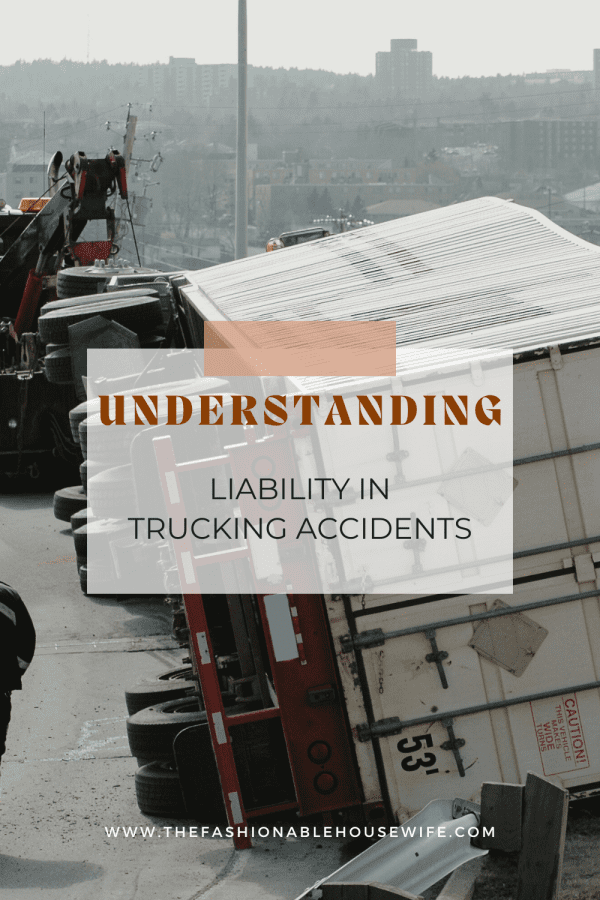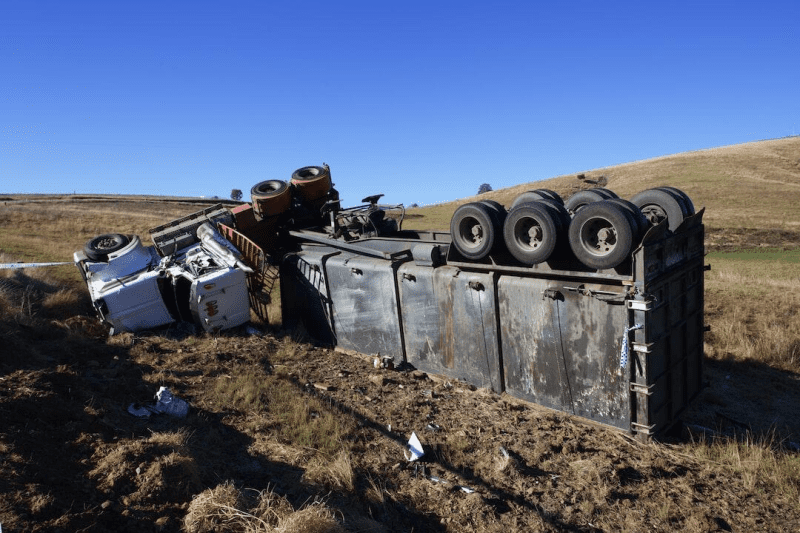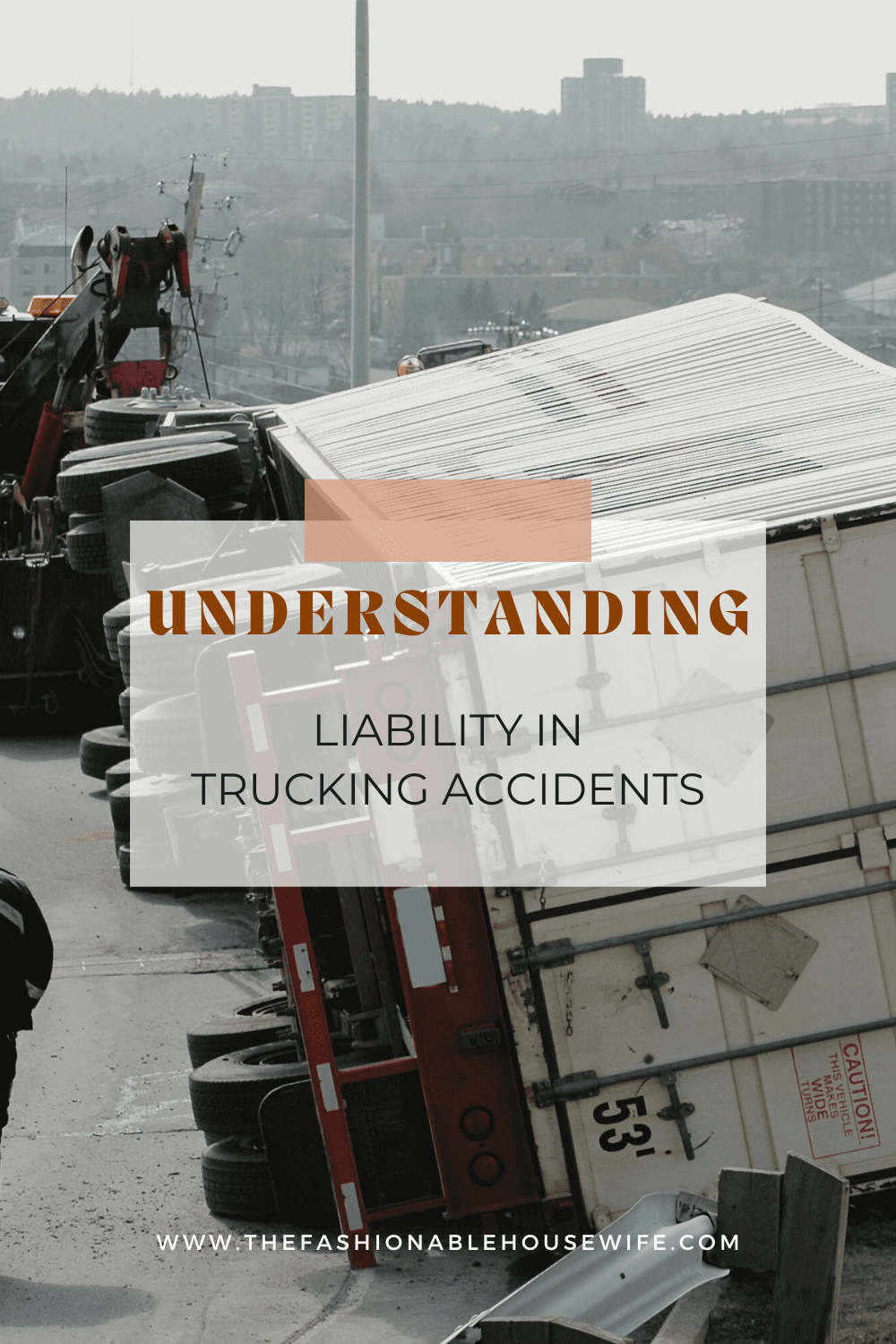Understanding Liability in Trucking Accidents

Who is responsible for a trucking accident? Trying to wrap your head around liability in trucking accidents can feel daunting, so let us help!
Trucking accidents can cause serious injuries and costly damages. But when they happen, figuring out who is at fault can be complicated.
Is it the truck driver, the trucking company, or even a parts manufacturer? Understanding liability is important, especially if you’re filing a legal claim.
In this article, we’ll explain the key factors that determine fault in a trucking accident. While your average mom or housewife won’t need this information, it’s important to understand, especially if your husband works in the trucking industry. So keep reading to know how to protect your rights and understand how the legal process works.
Driver Mistakes
Truck drivers can make mistakes that lead to serious accidents. Truckers aren’t always able to prevent accidents either. Speeding, distracted driving, and fatigue are common causes of crashes. Driving under the influence of drugs or alcohol can also increase the risk of an accident. Failing to check blind spots or making unsafe lane changes can put other drivers in danger.
Ignoring traffic signals and failing to adjust for weather conditions can lead to collisions. In legal claims, investigators look at driver logs, traffic camera footage, and witness statements to determine fault. If a driver’s negligence caused the accident, they may be held responsible for the damages.

Trucking Company Fault
Trucking companies can be responsible for accidents if they fail to follow safety regulations. Some companies push drivers to work long hours, leading to fatigue and mistakes on the road. Poor hiring practices, such as employing unqualified drivers, can also increase the risk of crashes.
If a company does not properly maintain its trucks, mechanical failures can cause serious accidents. Failing to provide adequate training can leave drivers unprepared for dangerous situations.
Poor Vehicle Maintenance
Trucks require regular maintenance to stay safe on the road. Worn-out brakes, tire blowouts, and engine failures can lead to serious accidents. If a trucking company or driver neglects routine inspections, mechanical issues may go unnoticed.
Faulty lighting or broken signals can make it harder for other drivers to react in time. Missing or delayed repairs can make a truck unsafe to operate. In legal claims, maintenance records and inspection reports are reviewed to determine if negligence played a role.
Dangerous Road Conditions
Bad road conditions can make it harder for truck drivers to stay in control. Potholes, uneven pavement, and debris can cause a truck to swerve or lose balance. Poorly marked lanes or missing road signs can lead to confusion and accidents.
Bad weather, such as heavy rain, snow, or ice, increases the risk of skidding and collisions. Construction zones with sudden lane shifts or obstacles can be especially dangerous for large trucks.
Insurance and Legal Rules
Trucking accidents involve multiple insurance policies and complicated legal rules. Liability may be shared by the following:
- driver
- trucking company
- vehicle manufacturer
Insurance companies often try to minimize payouts. This makes it difficult for victims to get fair compensation.
State and federal laws regulate trucking industry practices, which can impact accident claims.
All About Liability in Trucking Accidents
Understanding liability in trucking accidents is important for anyone involved in a crash. Fault can depend on the driver, trucking company, road conditions, or vehicle maintenance.
Knowing your rights and gathering strong evidence can help in legal claims. Seeking legal guidance can make the process easier and improve your chances of fair compensation.
Looking for more tips and ideas? We’ve got you covered. Check out some of our other posts now.

